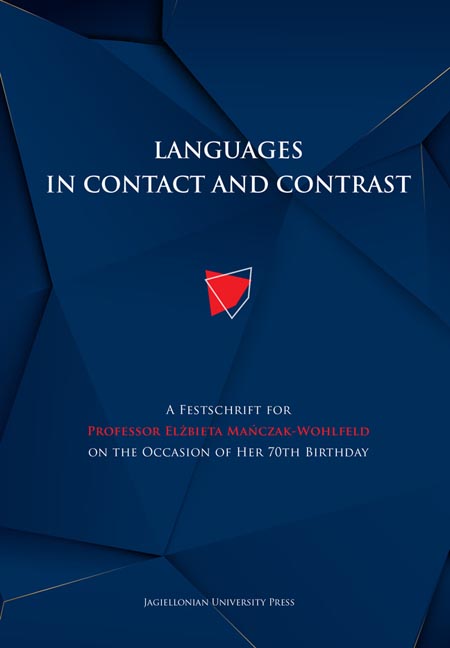 Languages in Contact and Contrast
Languages in Contact and Contrast Published online by Cambridge University Press: 14 October 2023
Introductory remarks
Podtatrze (Sub-Tatra) is a geographical and cultural region surrounding the Tatra Mountains which constitute the highest part of the Carpathians. It is a cross-border area which includes Podhale, Orava, Spiš and Liptov. The Polish part includes the whole of Podhale, Upper Orava and a part of Spiš called Zamagurie. The whole of Liptov is located in Slovakia. Due to the fact that Podtatrze is located near the border (where Polish, Slovakian, Vlach and Lemko cultural elements coexisted), and due to its difficult geographical conditions and particular historical events, a specific kind of folk culture developed in the region. Its most distinct feature was brigandage and sheep herding that took place in specific seasons in the Tatra Mountains. A role model of a brigand (a noble-minded daredevil praised in songs and legends, the embodiment of the highlander ethos of śleboda and hyr) that was shaped in Podtatrze is a folk counterpart of a knight. This specific (border) cultural type was naturally reflected in the phrasematics.
In the paper I am discussing phrasemes (multi-word expressions and proverbs) that originate from the local dialects of the Polish part of Podtatrze. The selection of units is not based on the differential criterion, so I am also referring to the examples recorded in all-Polish phraseological and paremiological collections.
Analysis of the material
Slavic beliefs, myths and legends
Placing Slavic beliefs, mythology and legends in one row is not accidental. Mythology is perceived here as a religious system the Slavic traces of which (as a result of deliberate actions of the Church) are most fully reflected in folklore – in the texts that were fixed as clichés, recreated and duplicated (such texts were the most difficult to eliminate as in the minds of the folklore participants they lost the connection with the old religion of the Slavs, so they did not contradict Christianity). This is why in The Slav’s Folk Culture (Kultura ludowa Słowian) by Kazimierz Moszyński (Mosz), in The Tree of Life. Folk Vision of the World and the Man (Drzewo życia. Ludowa wizja świata i człowieka) by Joanna Tomicka and Ryszard Tomicki (1975) and in the lexicon Slavic antiquity.
To save this book to your Kindle, first ensure [email protected] is added to your Approved Personal Document E-mail List under your Personal Document Settings on the Manage Your Content and Devices page of your Amazon account. Then enter the ‘name’ part of your Kindle email address below. Find out more about saving to your Kindle.
Note you can select to save to either the @free.kindle.com or @kindle.com variations. ‘@free.kindle.com’ emails are free but can only be saved to your device when it is connected to wi-fi. ‘@kindle.com’ emails can be delivered even when you are not connected to wi-fi, but note that service fees apply.
Find out more about the Kindle Personal Document Service.
To save content items to your account, please confirm that you agree to abide by our usage policies. If this is the first time you use this feature, you will be asked to authorise Cambridge Core to connect with your account. Find out more about saving content to Dropbox.
To save content items to your account, please confirm that you agree to abide by our usage policies. If this is the first time you use this feature, you will be asked to authorise Cambridge Core to connect with your account. Find out more about saving content to Google Drive.